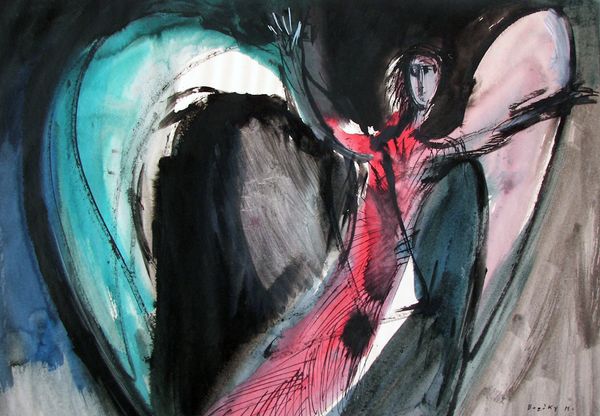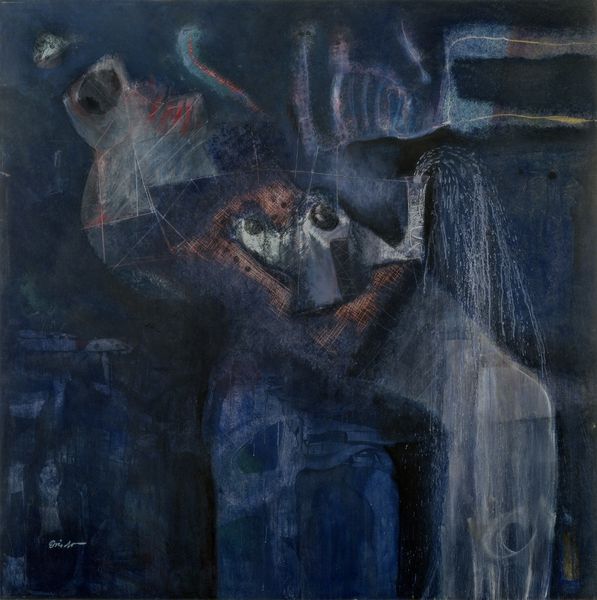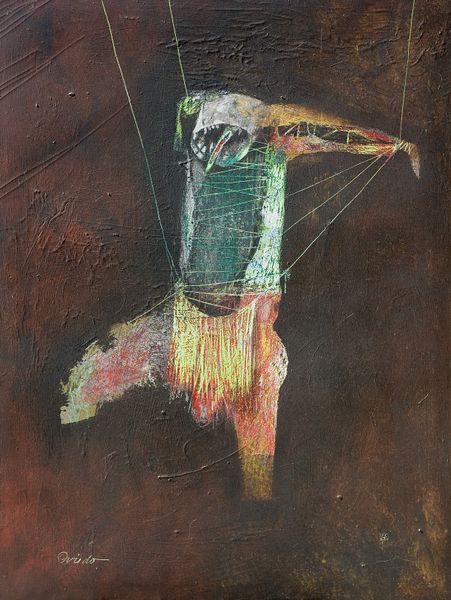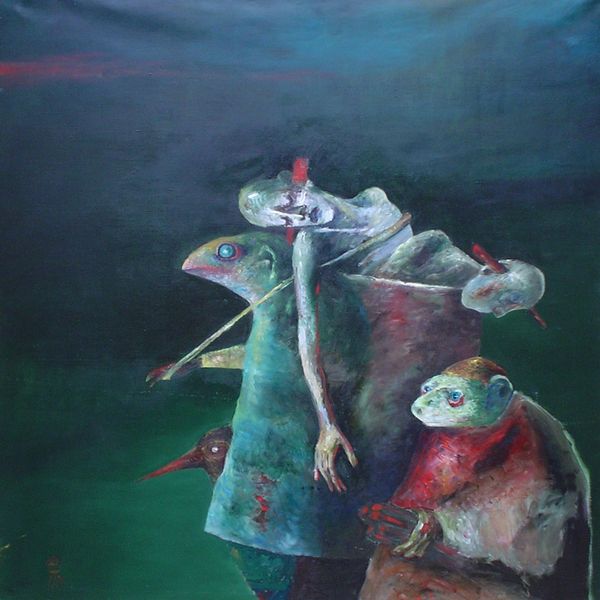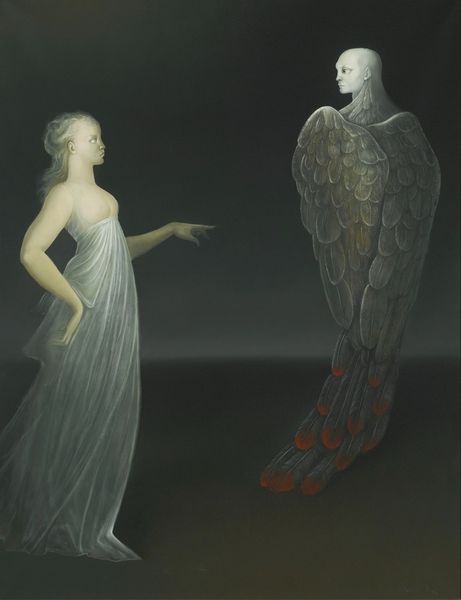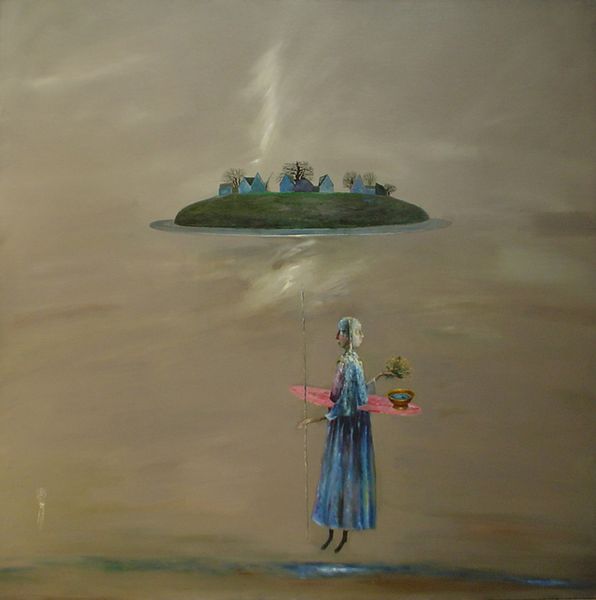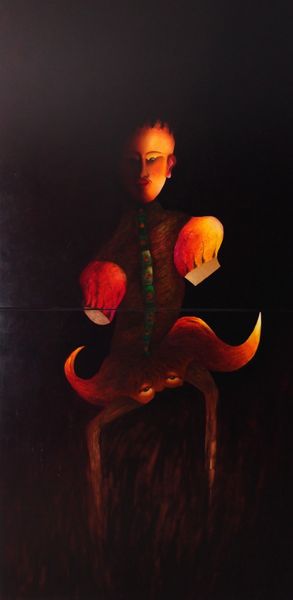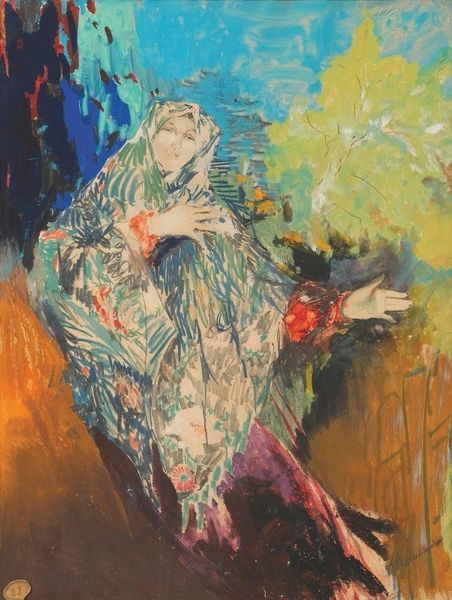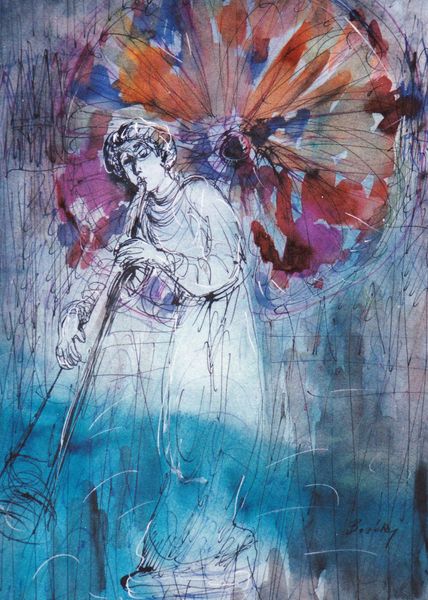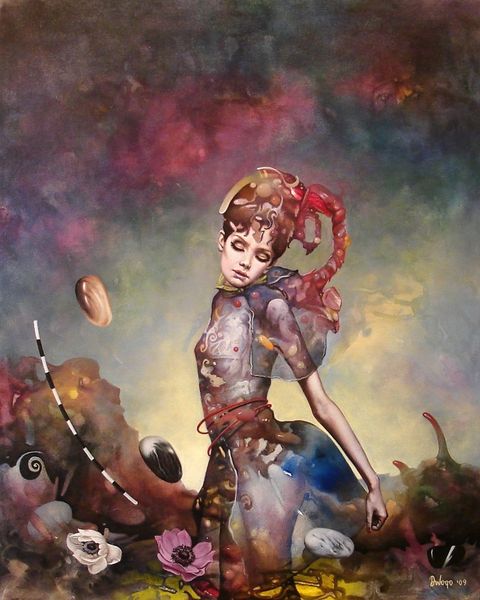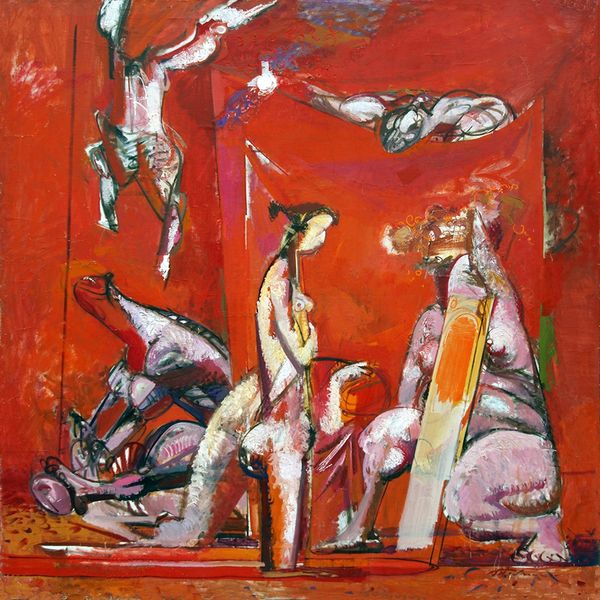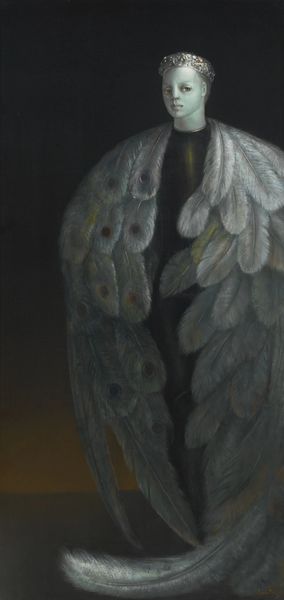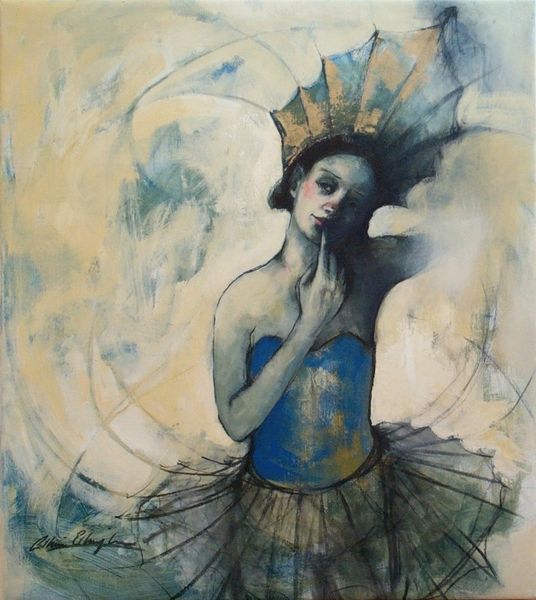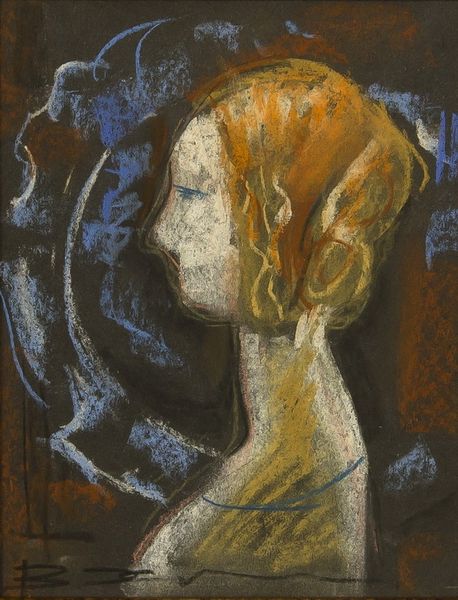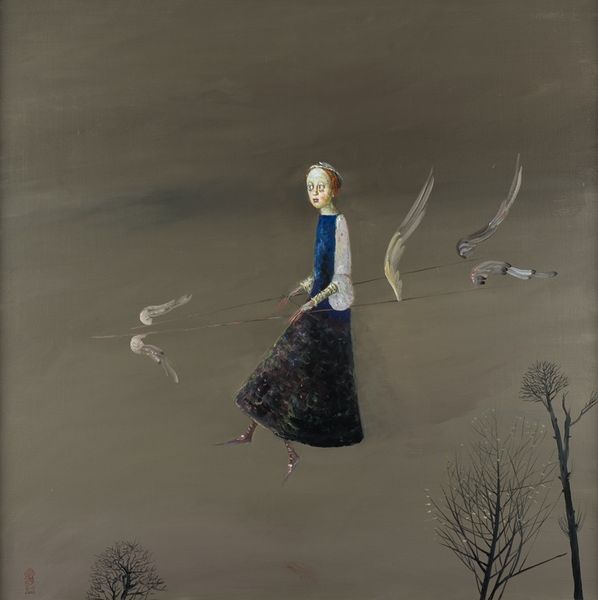
Copyright: Stefan Caltia,Fair Use
Curator: Stefan Caltia created this oil painting in 2005, titling it "Papagheno". It presents a solitary, winged figure center stage. What's your initial impression? Editor: Bleak, theatrical, and unsettling. The dark backdrop against the pallid figure evokes a sense of isolation, like a forgotten prop waiting for its cue. The red curtains framing the sides hint at drama, but the figure feels more melancholic than dramatic. I'm curious about the materiality. What kind of canvas is he using here? Curator: That dark background truly sets the mood. The character of Papageno from Mozart’s "The Magic Flute" is typically a joyful, almost childlike figure. This representation feels...different. Perhaps Caltia is exploring a darker side of the archetype, hinting at existential loneliness even amidst the spectacle of opera. Note the very pale coloring throughout that seems to drain life from the scene. Editor: Absolutely. And the very visible brushstrokes, especially on the curtains, emphasize the artifice, the constructed nature of the scene. I'd be keen to examine this up close. The visible marks and drips, do they expose something raw, a physical connection to the emotional weight? Or simply highlight the materials at hand? The artist’s labor is definitely palpable. Curator: Well, I think there is something about his treatment that resonates with the Symbolist movement. The character, his instrument, and the spotlight aren't just elements; they’re loaded with symbolic potential. Music itself is often seen as a connection to the divine. Editor: Right. Though seeing how it looks like it was hastily manufactured, almost theatrical like it was made as a part of a movie scene for a surreal movie of the time...it definitely plays an important role, given the stage setup that the curtains convey here. Curator: Precisely. So even if we’re looking at just oil and canvas, its relationship with a very theatrical, historically freighted narrative about performance allows those materials to perform too. To carry an entire legacy. Editor: Agreed. Thinking about it, it suggests this intersection of the mundane and the transcendent; what else could oil paints evoke like this, without referencing opera? It is evocative nonetheless. Curator: It's that tension, I think, between the mundane and the mythical, that makes this painting so compelling, that melancholy of human life and art. Editor: A fine ending to that stage play indeed, one worth remembering.
Comments
No comments
Be the first to comment and join the conversation on the ultimate creative platform.
